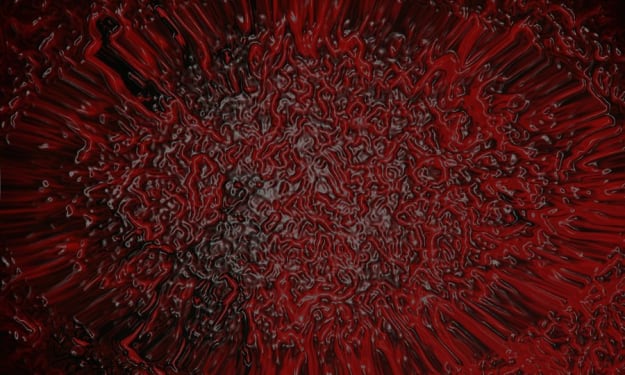How to Actually Care for Your New Piercings
What you actually need to do, and avoid the expensive aftercare products for sale.

Disclaimer: I am not a certified piercer, however I feel my experience as someone who's been stabbed with the needle enough is valuable... Somewhat. As of writing this, I've had 8 piercings over the past few years. All but 1 are still lodged in various places. I've had the usual useless dangly bits done; both earlobes, 2 oral piercings with different jewelry each time, cartilage, eyebrow, and one through the nipple. I feel like I'm well-versed enough to give my own personal insight.
The First Day
Regardless of what was pierced, for the first few hours having gone under the needle, the important thing is to not agitate the area near the piercing and resist the urge to touch and itch. The most important reason for this is that your hands touch a lot of things. Hopefully your piercing studio is clean... (if it isn't, get the hell out!). However, despite being in a clean environment, imagine how many people that day have touched, breathed and even coughed near the front door handle, the credit card machine, the stack of business cards, or the sale brochures. Ta dah! You've now got countless germs on your hands. Now, if you're touching your new piercing, which is essentially a brand new open wound, you've just forcefully introduced foreign germs an easy way to get inside your system. The open seeping wound can very easily get infected.
There is a fair amount of this going on just as you walk through the air, maybe you put the hood up on your hoodie because it's raining. It's bound to get some dirt/germs in it. Your body will realise this, notice it's also an open wound and try to form a scab. Dried blood is nothing to worry about for the first few days.
Now, You're Home...
Welcome home. Hopefully you've gotten through the intrusive questions of roommates, parents, or lodging avians, so you can now take another look at your new piercing. It might be bloody, it will be sore and the skin around the area of the piercing, 9 times out of 10, will be red. Again, this is normal. When you get a cut or a scratch, the skin around the cut goes red. It's a 100% normal reaction to signal damage on the skin. From here, the most important thing to remember is that your body is going to try and heal the piercings. There is a foreign body inside of your ear, through your lip, etc. Your body might try to reject it, pushing it out. This will also happen if you are stretching your piercings with long stretching spikes.
With most new body modifications — Tattoos included — when you first get home, it's usually time to give it the first clean. We'll ignore the tattoo advice as it's not quite the same as piercings! However, rule #1 is always have clean hands. The worst thing you can do is forcefully push dirt and germs into the new piercing. That is one of the ways infections can come about. When cleaning new piercings, you can buy commercial aftercare liquids, but you don't need to. I've found, with all of my piercings, the salt water solution and aftercare 'perform' the same. The only difference is the lingering aroma of lavender, which being a straight male isn't that desirable! Most of the time you can clean new piercings fine with salt water. The appropriate ratio for the mixture is ¼ a teaspoon of non-iodized salt in 8oz, or 1 cup of water. You can dab this (softly!) onto the new piercing. The usual thing is to give it a very, very slow rub the day after while cleaning, however with most cartilage you'll want to wait maybe 4 or 5 days before giving it a twiddle while cleaning it.
Oral Piercings
If you've got a new oral piercing, you'll have to be able to stand the taste of salt water for the first few days! Create your salt water solution, take a sip and swivel it around the area of your new piercing inside your mouth. Ideally, you'll need to do this after every time you eat, drink soft drinks, alcohol, or smoke. Make sure you brush your teeth at least twice a day and just generally practice good oral hygiene. Eat with small bites and eat slow, so you don't catch your new stud/ring. You'll want to clean both the inside and outside of your mouth around the piercing site with this salt solution.
Nipple Piercing
I know this article is primarily about the aftercare, however I have to first educate about the healing process about nipple piercings. It hurts, and it stays hurting for a while. Mine hurt constantly for a few days instead of just the usual hour, or so. It's fair to say the initial action of piercing hurt rather a lot. But, what I was not prepared for, was the pain of walking out the door. I live in England, so for the majority of the year, there's a bit of a nip in the air. And, you know when you hop out the shower into that cold air, your soldiers stand to attention? That entirely natural reflex that you have no control over hurts a lot with a freshly pierced nipple. You'll want to be very careful with cleaning it, getting dressed, getting undressed and almost anything that involves motion related activity, especially near your chest. Getting a still healing nipple piercing caught on something is very painful. So, just slow down a tad, and take in your surroundings!
About the Creator
Jon Baillie
Just an English lad who likes to write.






Comments
There are no comments for this story
Be the first to respond and start the conversation.